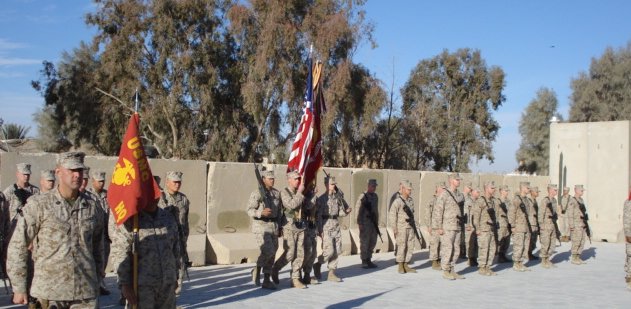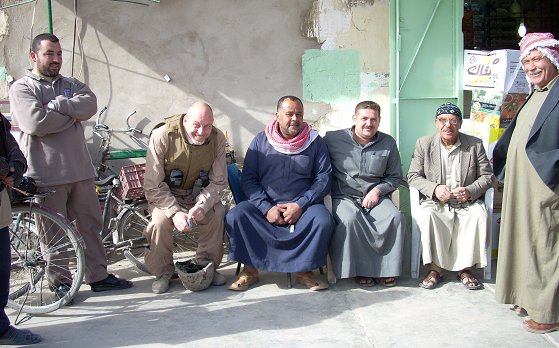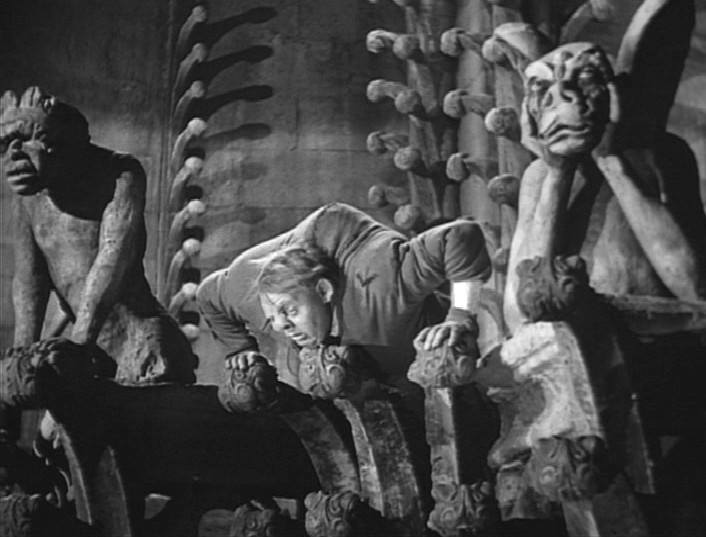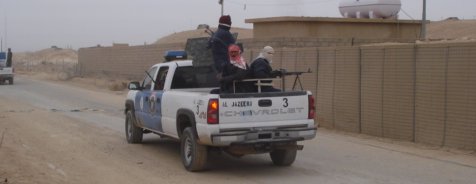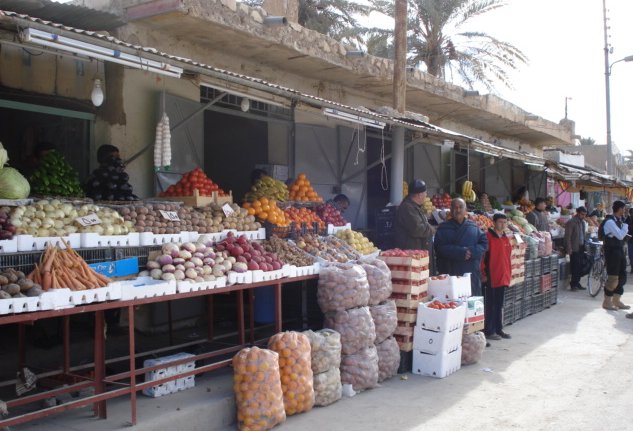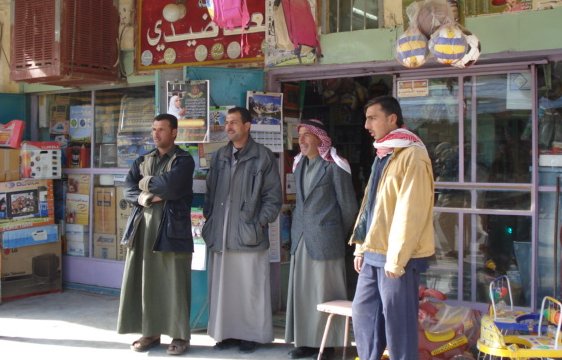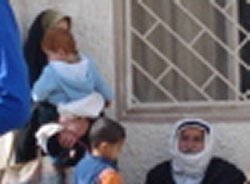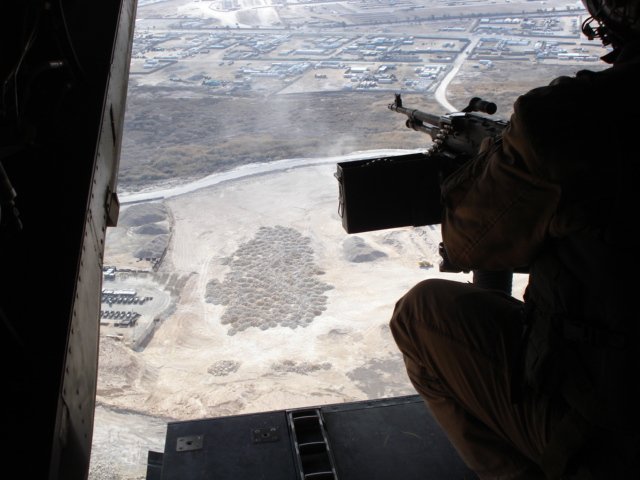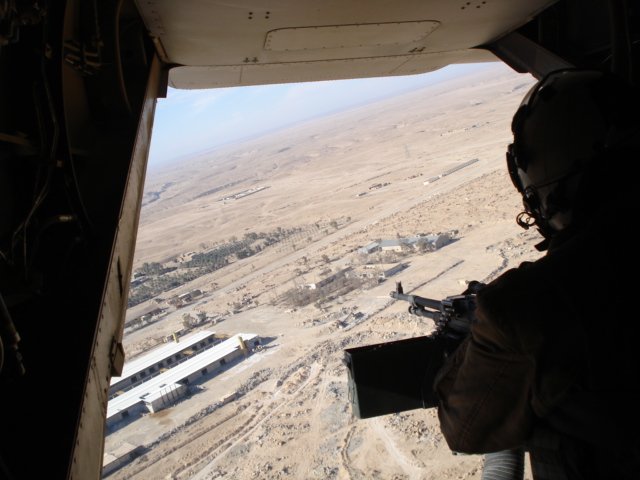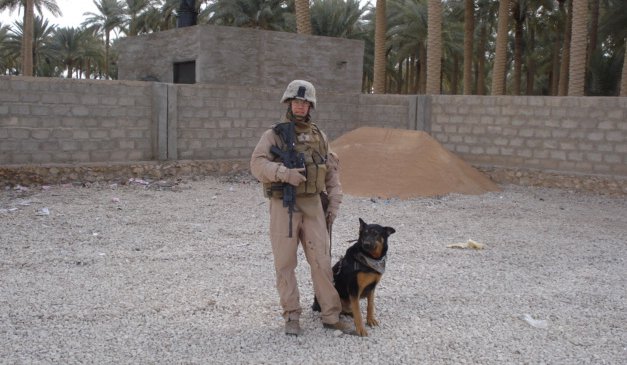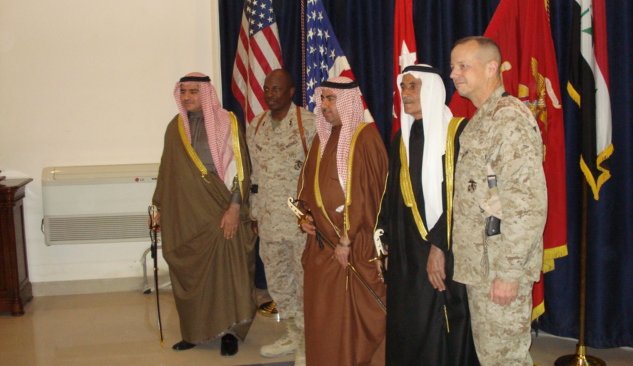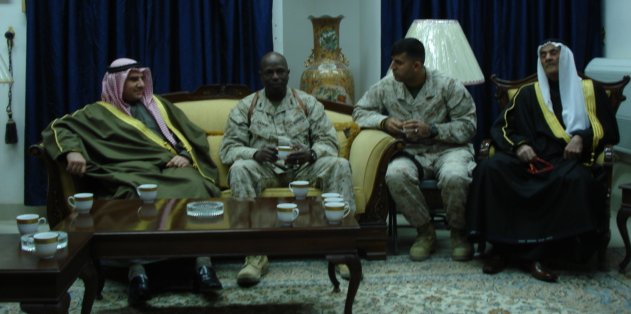If you look at the picture, you will notice that I am sitting on air. I had not planned to be in the picture or even to have a picture at all. The guy with the scarf asked us to take his picture and then they said that I should be in it too. I was significantly taller than the guys standing and thought that me standing next to them and the other guys sitting would look odd. So I tried that expedient you see there to fit the space. My solution was not optimal. You could probably call the picture, “Hunchback of Haditha.” All I need is some bells to ring and the Charles Loughton accent to say, “Why was I not made of stone like thee?”
A visit by the governor is spectacle to behold. He holds court for local leaders, who ask for help with their various projects and often get positive answers. The Governor seems generous, but generous politicians are threats to liberty & prosperity, not to mention property. They can give away only other people’s money and when they do that they create dependency among both recipients and the ones who are footing the bill, creating a layer of bureaucracy and probably corruption in the bargain. Politicians love to give away money and people love to get it, but the analogy is like someone borrowing your watch so that he can tell you what time it is. We suffer from an outdated paradigm of the “good” ruler, who is generous with his people. In a democratic age, their largess earns both praise and votes.
The situation is even more dangerous & pernicious in a place that is cursed with the largely unearned wealth bestowed by hydrocarbons deposited underground during the age of dinosaurs. Governments can easily commandeer this wealth and make themselves arbiters of distribution, buying loyalty and creating dependency almost with impunity. I think we need to be careful in supporting the politics of personality. A brighter future will involve the rule of law and even the rule of bureaucrats. It will mean that politicians do not have need – or have – the personal power to grant such favors.
In a Haditha market piled high with fresh produce, consumer goods and groceries, shoppers and shopkeepers alike waved and smiled. I talked with a few guys (pictured above.) They told me that security in the macro sense had improved remarkably in the past year. Their current complains were petty crimes and burglaries. I asked a local IP major about what the merchants said. He told us that he was aware of this situation and that it was being remedied. The break ins, he said, were isolated events. Patrols of both the IP and the Marines make it harder for criminals to commit crimes and local merchants have formed a neighborhood watch, which is scaring away the petty criminals.
The major went on that such neighborhood watches had been common before the war, but had fallen into disuse until recently. He thought that the IP could handle security in the region w/o the Marines, if not now in the very near future. But he allowed that he wanted the U.S. forces around to continue to help with rebuilding and reconstruction.
We also toured a hospital. It was much like the ones I saw in Eastern Europe, but not as nice. It was almost comical to go through the office area where it seemed everyone was smoking. Someone quipped that this was the smoke-therapy ward. A pharmacist gave us a list of drugs and materials he said he was lacking. One of my colleagues with a medical background noticed that they did not have even very simple physical therapy equipment. The general problem, however, is not lack of equipment but lack of trained personnel to use the equipment that exists or could be provided Several people told the same story about Iraqis who go to other countries to get medical treatment only to find that many of the doctors are from Iraq.


